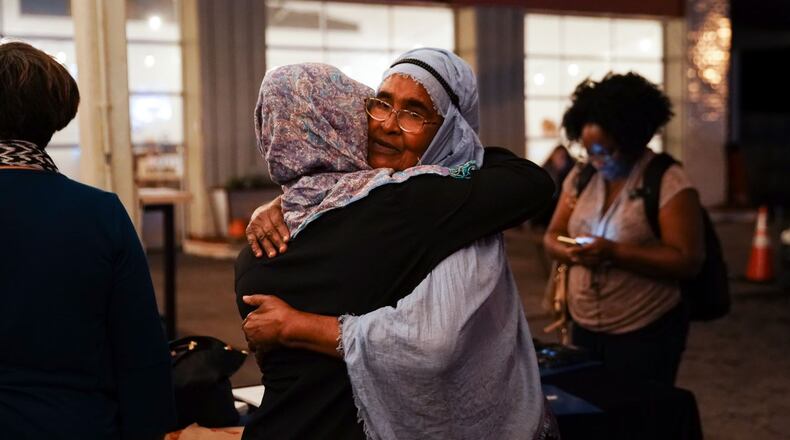Atlanta and DeKalb County will continue to accept international refugees following a federal executive order requiring communities to formally state whether the legal immigrants are welcome.
President Trump issued an executive order in September requiring states and cities to give written consent before refugees can be settled there, giving governments across the country the ability to halt future refugee arrivals. Trump also lowered the cap on the number of refugees allowed into the country from 30,000 in 2019 to 18,000 in 2020, the lowest level since Congress passed the Refugee Act of 1980.
“Refugees are resilient, hardworking people whose innovative skills have contributed greatly to our city,” Atlanta Mayor Keisha Lance Bottoms wrote in a letter to officials in the U.S. State Department, released Tuesday. The Atlanta City Council did not vote on the measure. “They have opened businesses, revitalized neighborhoods, and are productive members of our community. … For these reasons and more, the City of Atlanta will continue to welcome refugees.”
The DeKalb County commission unanimously voted Tuesday to continue accepting refugees.
A spokesman for Governor Brian Kemp said Tuesday the governor's office is "not going to be commenting at this time" on how Kemp will respond to Trump's executive order. The state’s decision would supersede the cities’ and counties’ desires on accepting refugees. So far, no governor or major city leader has enacted a ban following Trump’s order.
This year, refugee resettlement agencies in Georgia have welcomed just over 1,000 people, though that number has dropped since Trump took office in 2017, according to the federal Refugee Processing Center. Over the past decade, Georgia has been in the top 10 states nationwide for resettlement, with more than 23,000 refugees coming to Georgia.
In DeKalb, the city of Clarkston is known for being a welcoming hub for refugees; the U.S. Census Bureau estimates more than half of Clarkston’s 12,700 residents are foreign-born, with many coming from countries including Sudan, Ethiopia, Bhutan and Myanmar.
Paedia Mixon, the CEO of the DeKalb-based resettlement agency New American Pathways, said DeKalb has the largest population of refugees in the state, with many living in Clarkston, Stone Mountain, Decatur and other communities. Gwinnett County also has a relatively high number of refugees, Mixon said, adding that New American Pathways has been in conversation with Gwinnett officials about reaffirming its commitment to resettling refugees.
“The state has been a welcoming place for refugees for a very long time,” Mixon said. “We think it’s very important that Georgia continue to welcome refugees. It’s a part of our humanitarian tradition.”
The Trump administration’s efforts to shrink the number of refugees in the U.S. are already being felt on the local level.
World Relief, a Christian humanitarian agency, suspended its federally funded resettlement program in Georgia earlier this year after 40 years of service.
New American Pathways, which receives federal funding for each refugee it helps, has lost a fifth of its $5 million budget and shed six and a half positions since Trump took office, Mixon said.
And International Rescue Committee’s Atlanta office has eliminated three case worker positions during that time, The Atlanta Journal-Constitution reported in September.
Last month, three resettlement agencies filed a lawsuit in a federal court in Maryland, arguing that the Trump administration’s executive order is unconstitutional. A federal judge is expected to rule on the motion by late January.
About the Author
Keep Reading
The Latest
Featured



